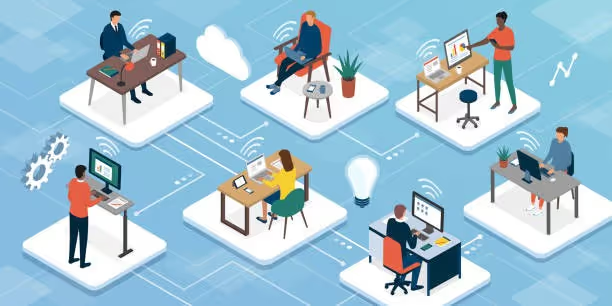The future is evolving faster than ever. With rapid advances in artificial intelligence, automation, remote work, and a globally connected digital economy, the world students are preparing to enter in 2026 looks drastically different from what it was even five years ago.
To succeed in this shifting landscape, students need to go beyond traditional academic learning. They must develop future-proof skills that align with technological, social, and economic changes. In this guide, we’ll explore the top skills to learn in 2026, breaking them down into key categories—technical, cognitive, interpersonal, and adaptive.
Top Skills to Learn in 2026
1. Technical Skills in Demand

A. Artificial Intelligence and Machine Learning
AI is shaping the future of industries like finance, healthcare, and cybersecurity. Understanding how machine learning, automation, and data-driven decision-making work is an asset for students entering these fields.
B. Data Science and Analytics
Companies rely on big data for decision-making, making data analytics and data science crucial skills. Even students outside tech fields can benefit from understanding basic data interpretation, statistics, and visualization tools like Excel, Python, and SQL.
C. Cloud Computing
With businesses moving to cloud-based platforms like AWS, Google Cloud, and Microsoft Azure, cloud computing expertise is a highly valuable skill in IT and business sectors.
D. Cybersecurity
As companies handle increasing amounts of sensitive data, cybersecurity professionals are in demand. Students with ethical hacking, encryption, and risk assessment skills will find excellent job opportunities.
2. Soft Skills Employers Value

Technical skills alone won’t guarantee success. Employers look for candidates who collaborate well, solve problems, and communicate effectively.
A. Critical Thinking and Problem-Solving
Industries are evolving quickly, requiring employees to think critically and adapt to new challenges. Analytical thinking and creative problem-solving make candidates stand out.
B. Communication and Collaboration
Effective communication—both verbal and written—is essential in every profession. Employers value candidates who can express ideas clearly, collaborate in teams, and work well in virtual environments.
C. Emotional Intelligence and Leadership
Leadership is more than just managing a team. Emotional intelligence (EQ)—the ability to understand, manage, and interact well with people—is a highly desirable trait.
D. Adaptability and Resilience
Industries are constantly evolving. Employees who embrace change, learn new technologies, and remain adaptable will have long-term career success.
3. Digital and Remote Work Skills

A. Digital Literacy
Students must be comfortable using technology, from simple office tools like Excel and Google Workspace to more advanced project management software like Trello or Asana.
B. Time Management and Self-Discipline
With remote and hybrid work environments becoming the norm, employers prefer candidates who can manage their schedules, stay productive, and meet deadlines without constant supervision.
How to Develop These Skills
- Online Courses: Check out courses from reputed institutes like IITs, IIMs and others.
- Internships & Projects: Hands-on experience in real-world scenarios strengthens your resume.
- Certifications: Earning industry-recognized certifications, like Google Data Analytics or AWS Cloud Practitioner, can boost career prospects.
- Networking: Connecting with industry professionals through LinkedIn, hackathons, and professional groups helps students gain insights and job opportunities.
Conclusion
The job market is shifting towards automation, AI, and digital transformation, making it essential for students to develop a combination of technical and soft skills. By investing in continuous learning, networking, and gaining hands-on experience, students can prepare for high-growth careers in the future job market.
FAQs: Top Skills to Learn in 2026
What are the most in-demand skills for students in 2026?
In 2026, the most in-demand skills will include digital fluency (AI, data analysis), critical thinking, emotional intelligence, adaptability, and effective communication—especially in remote and cross-cultural environments.
Do I need to be in a tech field to learn AI or coding skills?
No. Basic understanding of AI, coding, or data literacy is valuable across fields like marketing, education, healthcare, and even the arts. You don’t need to become a programmer—just understanding the fundamentals gives you a strong edge.
How can students build these skills outside of school?
You can build future-ready skills through online courses (Coursera, Udemy), internships, volunteering, personal projects, hackathons, or joining clubs related to entrepreneurship, debate, tech, or the arts. Learning doesn’t have to be limited to the classroom.
What is the easiest skill to start learning today?
Communication and digital literacy are great starting points. Begin by improving your email writing, learning to use tools like Google Docs, or taking a free online course in public speaking or digital marketing.
Why is emotional intelligence considered so important in 2026?
Because while machines can automate tasks, they can't replicate human empathy, self-awareness, and emotional regulation. Emotional intelligence helps students lead better, resolve conflicts, and build stronger teams—making it one of the top soft skills for the future.

.avif)





